A brand new discourse.org
This week we unveiled a completely revamped discourse.org!
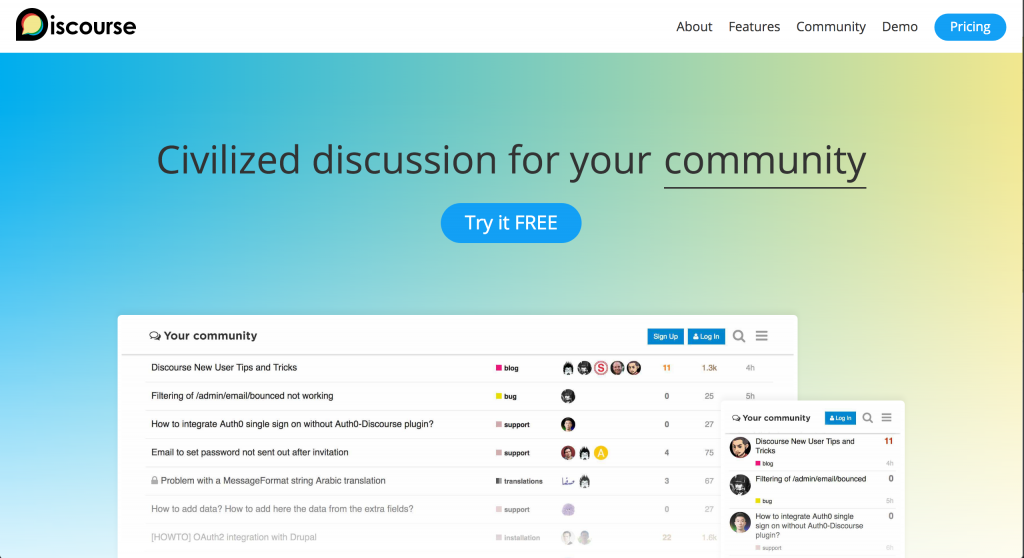

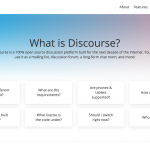
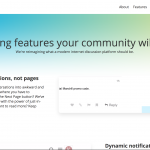
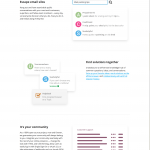
When our original website was first launched in 2013, Discourse's features were quite novel. Concepts like "infinite scrolling", "dynamic notifications" and "mobile-friendly" were state of the art for open source community platforms, especially stuck-in-90s era forum software. Now these features are taken for granted, as they should be.
That doesn't mean we've stopped innovating; just look at our latest v1.7 release. But we no longer have to convince people that Discourse is modern, hip – dare I say radical – and keeping with the times. That's a given. What we need to do now is explain …
What problem can Discourse solve for YOU?
It all started with a new topic
We use Discourse for our own internal team discussions -- naturally! Almost a year ago I created a new topic titled "Proposal for a redesigned discourse.org front page". It included this mockup:
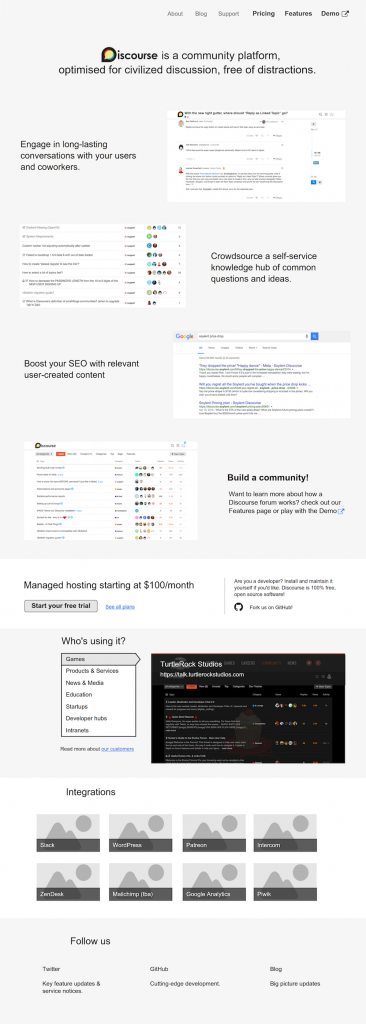
We all agreed that this needed to happen, just not right away. During the months that followed we sporadically followed up with examples of websites we liked or good sources of inspiration, like this one:
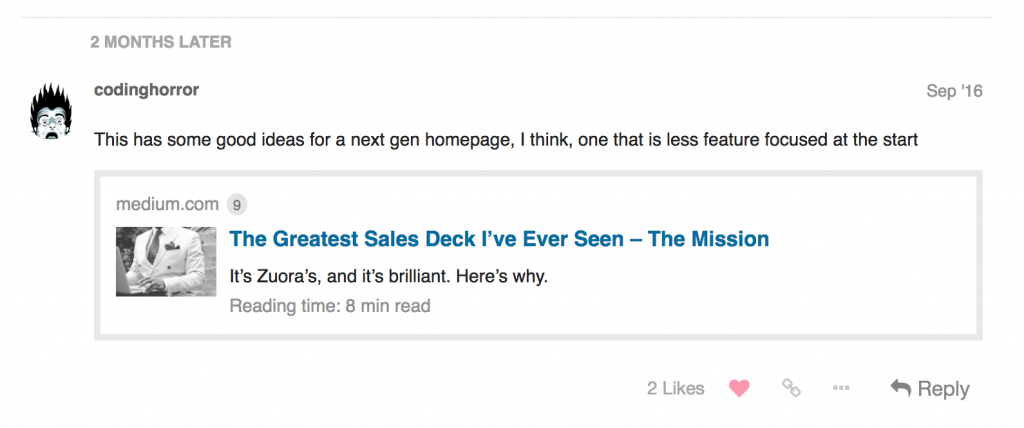
2017 came around and we decided it was time to get the wheels rolling. We went back and forth on the copywriting, which in hindsight is something I should have put much more emphasis on in the first place! My original mockup was all about revising our current copy. We ultimately settled on three "pillars":
Emails don't scale.
Problem solving is best done in public.
Communities ought to be owned by their creators.
At this point we brought in web developer extraordinaire Kris Aubuchon to push this project to the finish line. Before long, a shiny new discourse.org was just waiting for us to flip the switch, which we've now done!
If you like our new pitch, consider trusting us with the stewardship of your community: Check out our hosting plans, and then pop on over to meta.discourse.org and join us in celebrating this shiny new place we call home.
